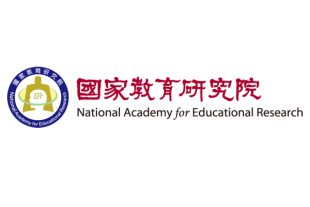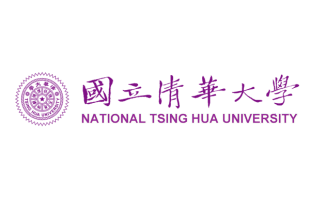Home » Blog » 學術論文英文校稿時發現的常見錯誤:「further、immigrate、lie」等正確用法
學術論文英文校稿時發現的常見錯誤:「further、immigrate、lie」等正確用法
作者: Wallace
發布日期: 2023 / 12 / 2, |
651 |
人已瀏覽 |

以下是與華樂絲合作過的客戶




















最近進行校稿工作時發現了一些文章中在用字上的錯誤,我想借此機會將這些常見錯誤一起分享给大家。
常見錯誤一:「further vs. farther」
「Further」和「farther」都是形容距離的副詞,但在用法上有細微差別。
「Further」像是距離上的比喻(距離或進步的程度),例如:「We further investigated the difference」或「She is further along in her career than he is」;而「farther」指的是字面上的物理距離,例如:「I can throw the ball farther than you can」或「The islands farther south have a different climate」。
總而言之,「further」用於隱喻或比喻距離,而「farther」用於實際的物理距離。
常見錯誤二:「rough estimation (approximate) 」
「Rough」和「estimation」都是「大約」的意思。在期刊要求用字精簡之下,使用其一即可或用「approximate」,例如:「We calculated a rough estimation of the cost of production」可改寫成「We calculated the approximate cost of production」。
相關英文寫作文章推薦:如何縮短一篇已經很短的學術英文文章?
常見錯誤三:「2AM in the morning」
「AM」和「PM」都是來自拉丁文;「AM」是「ante meridiem」的縮寫,意思是中午前,而「PM」是「post meridiem」,意思是中午後。因此使用「AM」和「PM」不必在後面加上「in the morning, afternoon, evening」或「at night」,因為「2AM」只會是凌晨,不會是下午。
常見錯誤四:「manually by hand (manually) 」
「Manually」就是人工或手工的意思,所以「by hand」是多餘的,例如:「The interview content was then manually inputted by hand to an electronic format」可改寫成「The interview content was then manually inputted」或更精準地「The interview content was then transcribed in verbatim(逐字輸入)」。
常見錯誤五:「RAM memory」
「RAM」是「random-access memory」的縮寫;使用「RAM memory」則會變成「random-access memory memory」,會重複「memory」一詞,因此用「RAM」即可。
常見錯誤六:「emigrate vs. immigrate vs. migrate」
「Emigrate」和「immigrate」的區別在於移動的方向。
「Emigrate」是指離開自己的國家到另一個國家永久居住。它著重在原籍國或該人離開的地方,例如:「She decided to emigrate from Italy to Canada」。
「Immigrate」意味著進入另一個國家永久居住。它著重在目的地國家或該人到達的地方,例如:「She decided to immigrate to Canada from Italy」。
「Migrate」是指從一個地方移動至另一個地方,日常對話裡通常是出於季節性或臨時原因,不一定意味著國籍或居住地的變化,例如:「Birds migrate from north to south during the winter season」或「Some people migrate from rural areas to cities for job opportunities」。
常見錯誤七:「previously mentioned above」
「Previously mentioned above」可用「aforementioned」一字代替。另外,因排版關係,所指的文字或圖表常常不一定在「上方(above)」,因此也會建議避免使用。
常見錯誤八:「lose vs. loose」
「Lose」是指遺漏或輸了,而「loose」是指某物不緊或不牢固。
「Lose」是動詞,可表示被剝奪某物、不成功或遺漏,例如:「I don’t want to lose my keys again」或「The team lost the game yesterday」。
「Loose」是形容詞,意思是不緊或沒有牢固地固定到位,例如:「The shirt is too loose for me」或「The dog is running loose in the park」。
相關英文寫作文章推薦:學術論文的引述與翻譯:在英文文章中正確引用外語詞彙及片語
常見錯誤九:「In spite of the fact that (although) 」
雖然「in spite of the fact that」在日常對話中很常見,但在寫作上使用就顯得很累贅,因為那六個字其實可以用「although」或「despite」表達,例如:「In spite of the fact that the results were nonsignificant, the behavior pattern warrants further research」可改寫成「Although the results were nonsignificant…」。
常見錯誤十:「lie vs. lay」
「Lay」是一個及物動詞,需連接著受詞。「Lay指將某物放置或擺置在平坦的位置,例如:「She laid the book on the table」或「He laid the baby in the crib」。
「Lie」是不及物動詞,則不需連接著受詞。「Lie」指躺下或處於平坦的位置,例如:「She lies down on the bed to rest」或「The cat is lying in the sunbeam」。
再來,「lay」的過去式是「laid」,「lie」的過去式是「lay」;這也會增加混亂,例如:「She lay down for a nap」中使用的動詞其實是「lie」而不是「lay」,儘管用的字是「lay」。
您是否發現論文裡有類似的常見英文錯誤呢?忙碌的您是否覺得校稿文章很花時間,導致其他重要的事情都必須延後?華樂絲的英文編修服務能幫您檢查英文文法、英文詞彙以及期刊格式!請上傳您的稿件,讓我們為您分憂!
相關英文學術寫作文章推薦:
- 英文論文校稿時發現的常見錯誤:Time Period、Practicable、國家名稱等正確用法
- 英文學術寫作中容易搞錯的年份、年代、世紀、與數字寫法
- 有鑑於(Given That)、All、Since、Such:容易造成混淆的十種英文寫作錯誤(第一部分)
- 五組常誤用的英文單字
- 醫學英文寫作中容易混淆的英文單字


希望我們的英文寫作、英文文法教學及論文期刊投稿指導文章有幫到您!
若有英文編修需求,請試試我們的免費300字試用服務,華樂絲英文編修品質絕對會讓您滿意:
部落格分類標籤: 常見用詞錯誤
訂閱電子報
提供英文文法、中英翻譯、英文寫作技巧以及碩博士生涯規畫等,專為台灣碩博士生與研究者量身打造的學習內容。每週自動寄送至您指定的Email信箱,隨時都能取消訂閱。
超過 315,000 名中港台碩博士生與研究人員訂閱
華樂絲服務項目
文章搜尋
文章分類
演講活動
|
2020.11.27 - 國立臺北科技大學 |
|
2020.11.19 - 工業技術研究院 |
|
2020.11.17 - 國立臺灣大學 |
|
2020.6.16 - 工業技術研究院人力處 |
|
2020.2.6 - 國立交通大學產學運籌中心 |
| 邀請Dr. Steve Wallace演講 |
